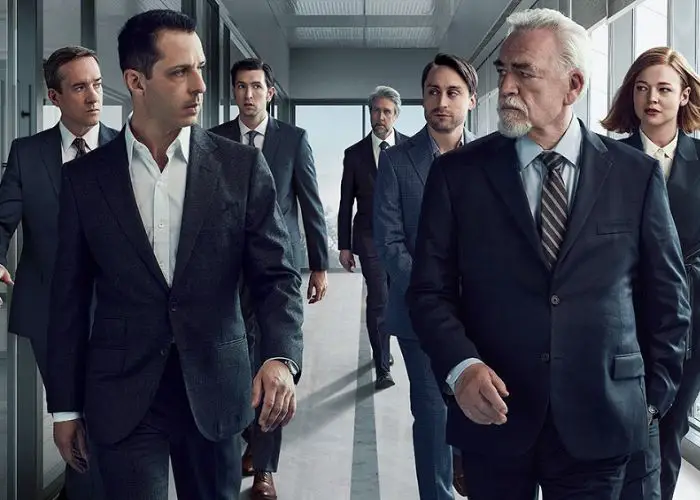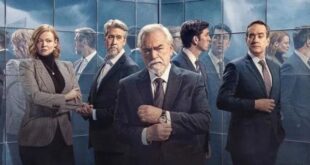Unveiling the intricacies: The Ending of Succession explained, as the Roy family’s power struggles reach a poignant and satisfying conclusion.
The critically acclaimed series Succession has reached its conclusion after four remarkable seasons and 39 unforgettable episodes.

We recommend you: Where to watch Yasak Elma in English
With a memorable ending that resolves the mystery surrounding Logan Roy’s successor, let’s delve into the finale’s implications and explore why it serves as a fitting conclusion to this captivating family drama.
Succession Ending Explained
In the previous episode, it became evident that Kendall would play a pivotal role in the series’ finale. From the start, it seemed destined for him to take the helm of Waystar RoyCo, regardless of whether he was truly fit for the position.
Jeremy Strong’s portrayal of Kendall has consistently highlighted the character’s intriguing pathos, culminating in a powerful final conversation with Roman and Shiv, as he realizes that his grasp on power slips away. Kendall shines brightest when contrasted with the rest, notably saving Roman at his father’s funeral, showcasing his complex nature.
Kendall’s ability to convince his siblings to form a united front against Matsson demonstrates his astuteness. Shiv, betrayed at the last moment, and Roman, grappling with a personal crisis, both acknowledge Kendall’s leadership.
The series masterfully explores the concept of family reconciliation, from Kendall’s unconventional coronation at their mother’s home to the profound impact of watching their father’s video together with Connor. In this poignant scene, Brian Cox’s character appears genuinely content, a rare moment of true happiness. While moments of power and triumph abound, genuine happiness has eluded them.
A bittersweet conclusion awaits Succession, as a happy ending would undermine the essence of the show, even if it emphasized Kendall’s inevitable downfall in power. The series had already hinted at Kendall’s increasing isolation, evident in his troubled relationships with his ex-wife and children, as well as the sudden departure of his secretary.
His loneliness ultimately leaves him adrift without purpose. It is a devastating yet logical conclusion. Similarly, Shiv’s last-minute change of heart may initially surprise, but her character has always been more emotionally driven than Roman and Kendall.
She is adept at maneuvering to improve her position, and it’s undeniable that she will wield more power without Kendall. However, her emotional deterioration and her doomed relationship with Tom are palpable. Despite being the best possible outcome for her, she remains subject to the whims of another.
The script by Jesse Armstrong is precise and impeccable, delivering moments that resonate with astonishing ease. The actors’ performances are equally essential, as they skillfully deliver the marvelous dialogue and express their characters’ states through physical and gestural cues.
Kendall’s crumbling persona shines brightest, but a brief confrontation between Tom and Greg stands out, showcasing the latter’s determination as he retaliates against his mentor. It wouldn’t be surprising if Tom ultimately saves Greg from certain downfall when he becomes the new CEO. Greg undergoes a transformation similar to Tom’s own journey, from being merely Shiv’s ambitious partner to a force to be reckoned with.
Although Matsson may gain control of Waystar, the absence of Alexander Skarsgård in the final minutes serves as a reminder that Succession is the story of the Roy family and all that binds them together, but more importantly, all that sets them apart.
Even the triumphant Tom remains a mere intermediary, still subject to the influence of others. It’s not a defeat, especially considering his precarious position, but it’s curious that what likely convinced Matsson to back him was Shiv’s clear willingness to submit to the most powerful person.
And that would be all about Ending of Succession explained! I hope you liked it.

